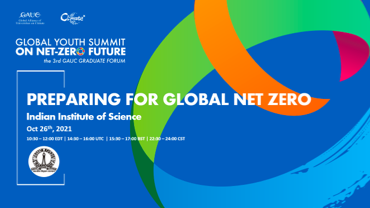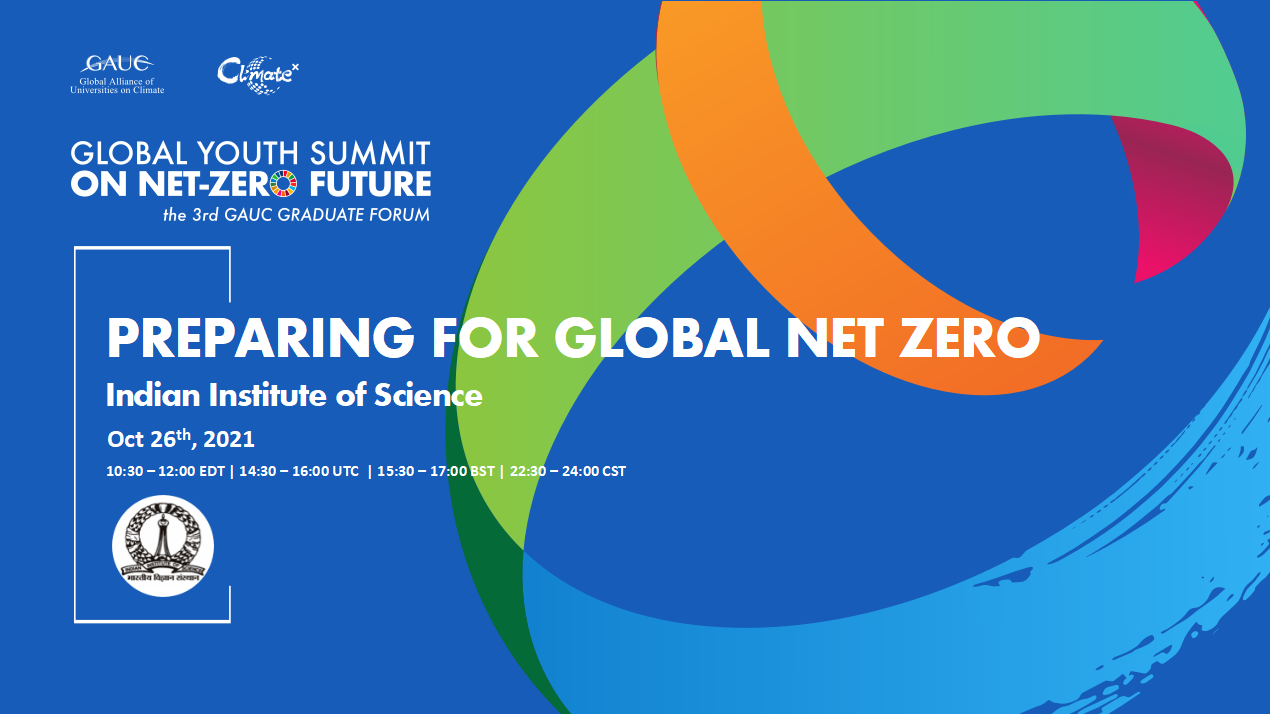
2021-10-26
Virtual event via Zoom, link will be published in Personal Center register to stay tuned.
REGISTER
As a signatory of the Paris Agreement, India is strongly in favour of limiting global warming to a temperature rise of 1.5oC. The IPCC Special Report, Global Warming of 1.5oC, recommends that a global Net Zero Emissions by 2050 trajectory is likely to meet this objective. India is well on its way to significantly exceed the mitigation actions promised in the Nationally Determined Contributions for the Paris Agreement. It is important for India and other developing countries to balance their development and climate change challenges simultaneously.
This panel discussion focuses on the climate policies, climate diplomacy initiatives, global partnerships, and climate policy institutions and implementation mechanisms that India, and the world, need in this decade to prepare for a global Net Zero target.
Date: Tuesday, 26 October 2021
Time: 8:00 pm - 9:30 pm (IST) | 10:30 – 12:00 EDT | 14:30 – 16:00 UTC | 15:30 – 17:00 BST | 22:30 – 24:00 CST
Organised by: Global Alliance of Universities on Climate (GAUC) and the Divecha Centre for Climate Change, IISc.
Panellists:
Moderator and discussant: Prof J Srinivasan, Indian Institute of Science, Bangalore
What should India’s position be on the global Net Zero target? Prof. Tejal Kanitkar, National Institute of Advanced Studies, Bangalore.
Design of climate policy architecture and institutions for India. Prof. Navroz Dubash, Centre for Policy Research, New Delhi.
What should India’s climate policies be in this decade? Dr. Shoibal Chakravarty, Divecha Centre for Climate Change, Indian Institute of Science, Bangalore.
The Global Climate Incentive. Prof E Somanathan, Indian Statistical Institute, New Delhi.
26

Virtual event via Zoom, link will be published in Personal Center register to stay tuned.
This is a registererd online event via Zoom, please confirm your email account associated with Zoom.
Confirm